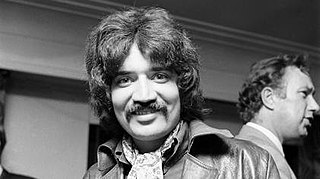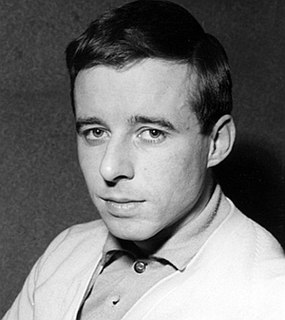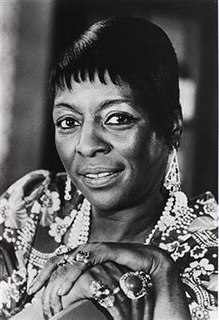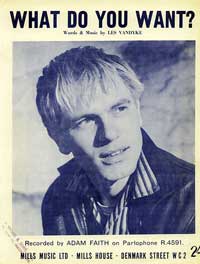Related Research Articles

Gerry and the Pacemakers were a British beat group prominent in the 1960s Merseybeat scene. In common with The Beatles, they came from Liverpool, were managed by Brian Epstein, and were recorded by George Martin. Their early successes alongside the Beatles were instrumental in popularizing the Merseybeat sound and launching the wider British beat boom of the mid-1960s.
The Kane Gang were an English pop trio formed in Seaham in 1982. The group comprised Martin Brammer, Paul Woods and Dave Brewis. They scored several UK and US hits in the 1980s. Named alluding to the movie Citizen Kane, the trio recorded for the record label Kitchenware, which was also home to Prefab Sprout.
"Israelites" is a song written by Desmond Dekker and Leslie Kong that became a hit for Dekker's group, Desmond Dekker & The Aces, reaching the top of the charts in numerous countries in 1969. Although few could understand all the lyrics, the single was the first UK reggae #1 and among the first to reach the US top ten. It combined the Rastafarian religion with rude boy concerns, to make what has been described as a "timeless masterpiece that knew no boundaries".

Peter Eardley Sarstedt, briefly billed early in his career as Peter Lincoln, was an English singer-songwriter and instrumentalist. He was the brother of musicians Eden Kane and Clive Sarstedt.

Floyd Cramer was an American pianist who was inducted into both the Country Music Hall of Fame and the Rock and Roll Hall of Fame. His signature playing style was a cornerstone of the pop-oriented "Nashville sound" of the 1950s and 1960s. Cramer's "slip-note" or "bent-note" style, in which a passing note slides almost instantly into or away from a chordal note, influenced a generation of pianists. His sound became popular to the degree that he stepped out of his role as a sideman and began touring as a solo act. In 1960, his piano instrumental solo, "Last Date" went to number two on the Billboard Hot 100 pop music chart and sold over one million copies. Its follow-up, "On the Rebound", topped the UK Singles Chart in 1961. As a studio musician, he became one of a cadre of elite players dubbed the Nashville A-Team and he performed on scores of hit records.
"I Believe" is a popular song written by Ervin Drake, Irvin Graham, Jimmy Shirl and Al Stillman in 1953. The most popular version was recorded by Italian-American singer Frankie Laine, and spent eighteen weeks at No. 1 on the UK Singles Chart.
"Don't Let the Stars Get in Your Eyes" is a country song about a man away from home who is worried that his paramour may unwittingly stray from their relationship. The song was recorded in many different styles by many artists. It was written by Winston L. Moore and published in 1952. Perry Como's recording of the song became a No. 1 hit in both the US and UK.
Richard Graham Sarstedt, known by the stage name Eden Kane, is an English pop/rock singer, record producer and actor best known as a teen idol in the early 1960s, in the pre-Beatles era. He has also recorded under his birth name and with backing group the Downbeats.

Jerry Lordan was an English songwriter, composer and singer. He achieved 3 hit singles on the UK Singles Chart before focusing purely on songwriting. Amongst his songwriting credits were the chart hits "I've Waited So Long", "Apache", "Wonderful Land", "Diamonds", and "A Girl Like You".
Mark Wynter is an English actor and former singer, who had four Top 20 singles in the 1960s, including "Venus in Blue Jeans" and "Go Away Little Girl". He enjoyed a lengthy career from 1960 to 1968 as a pop singer and teen idol, but developed later into an actor in film, musicals and plays.
Clive Robin Sarstedt is a British pop music singer and instrumentalist who is best known for his UK hit "My Resistance Is Low", a cover of a song written and originally recorded by Hoagy Carmichael. He is the younger brother of musicians Eden Kane and Peter Sarstedt.
John Worsley, more widely known under the pseudonyms Les Vandyke and Johnny Worth, was an English popular music songwriter from the 1950s to the 1980s, who started his career as a singer.
"A Woman in Love" is a popular song. It was written by Frank Loesser and published in 1955. It was introduced in Samuel Goldwyn's 1955 cinematic adaptation of the Broadway musical Guys and Dolls, for which Loesser contributed three new songs – including "A Woman in Love" – which had not been in the original stage production. In the film, it was sung as a duet between Marlon Brando and Jean Simmons. The cover version by Frankie Laine reached number 1 in the UK Singles Chart in 1956.

Lorraine Ellison was an American soul singer and songwriter known for her recording of the song "Stay with Me" in 1966.

"1 - 2 - 3" is a 1965 song recorded by American blue-eyed soul singer Len Barry, who also co-wrote the song with John Madara and David White. The recording's chorus and accompaniment were arranged by Jimmy Wisner. The single was released in 1965 on the American Decca label. The writers were sued by Motown Records at the time, claiming that the song is a reworking of Holland-Dozier-Holland's "Ask Any Girl" released by The Supremes as the B-side to their single "Baby Love" the year before. They denied the claim, but after two years of litigation, agreed to give the Motown writers 15% of the song's writing and publishing royalties. Holland-Dozier-Holland are listed as co-authors by BMI.

"What Do You Want?" is a 1959 song that became a number one hit in the United Kingdom for Adam Faith. It was written by Les Vandyke, produced by John Burgess, and arranged by John Barry. It first appeared on the UK Singles Chart on 20 November 1959, and spent 19 weeks there. It was at number one for three weeks, sharing the position for the final week with "What Do You Want to Make Those Eyes at Me For?" by Emile Ford & The Checkmates. It is the shortest song yet to reach number one in the UK Singles Chart.

The discography of American country music singer Marty Robbins consists of 52 studio albums, 13 compilation albums, and 100 singles. In his career, Robbins has charted 17 Number One singles on the Billboard Hot Country Songs charts, as well as 82 Top 40 singles.
Bunny Lewis also known professionally under various pseudonyms was a London-based manager, record producer and composer and music manager whose songwriting abilities were used in a number of films. Sometimes this coincided with involvement in films of musicians whom he personally managed, most notably the actor and singer, Craig Douglas. He also co-composed the song, "Cara Mia". Authorship was accredited to 'Tulio Trapani and Lee Lange'; Lee Lange was the pseudonym for David Whitfield's producer, Lewis, and Tulio Trapani was the nom de plume of the song's other co-writer and arranger, Mantovani.
"Walking the Floor Over You" is a country music song written by Ernest Tubb and released in the United States in 1941.
References
- 1 2 "Allmusic discography". Allmusic.com. Retrieved 12 November 2008.
- ↑ Roberts, David (2006). British Hit Singles & Albums (19th ed.). London: Guinness World Records Limited. p. 296. ISBN 1-904994-10-5.
- ↑ "Biography and discography". 45-rpm.org.uk. Retrieved 12 November 2008.
- ↑ Rice, Jo (1982). The Guinness Book of 500 Number One Hits (1st ed.). Enfield, Middlesex: Guinness Superlatives Ltd. p. 58. ISBN 0-85112-250-7.
- ↑ "45cat.com". 45cat.com. Retrieved June 5, 2020.